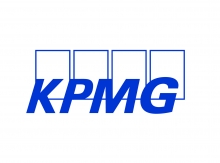Key findings from this research include:
A strengthening of emerging market investments. In the past three years the vast majority of companies that already invest in emerging markets have deepened their investment in this area. Seventy-nine percent of respondents reported an increase in investment, 14% expected their level of investment to remain the same and only 7% reported a decrease.
A more favourable risk/return ratio. As well as deepening their investment in emerging markets, respondents are also boosting the time and resources dedicated to risk management, with 66% reporting either a slight or significant increase. Fifty-five percent of respondents think that the risks associated with investing in emerging markets have increased in the past three years, but a slightly greater proportion (64%) report that the rewards have increased. In other words, respondents appear to think that the risk/return ratio is becoming more favourable.
Many companies do not adopt a formal approach to risk. Although there is a clear recognition of the importance of operating risk in emerging markets, with the stability of the political regime identified as the single biggest threat, many companies still lack a formal process for assessing and managing such risk. Just 49% say that their company has a formal process for integrating political risk management into their investment process.
Risks force the cancellation of investments. Concerns about political risk have forced 65% of respondents to cancel planned investments in emerging markets, which suggests two important points: first, that these markets remain highly volatile; and second, that the due diligence processes of those questioned are fairly robust. More worrying is the finding that 26% have cancelled existing investments because of concerns about political risk. As well as indicating that these markets are subject to sudden upheaval, this finding could also demonstrate that, in some cases, investments are being made without assessing the true risks, or that companies are not spending enough time on ongoing risk management of existing investments.
Companies consult widely outside the company. Respondents favour political and economic analysts as the main source of intelligence regarding operating risk in emerging markets, with 53% consulting the former as part of their risk management processes and 66% consulting the latter. Contacts in other companies are another important source of information, cited by 47% of those surveyed, while 40% consult the host government. This finding illustrates the importance of two types of risk information: independent, quantifiable data; and more qualitative information built around relationships on the ground.
Fewer than half of respondents perform an ongoing risk assessment. For most companies the risk management effort is concentrated on the period when an investment opportunity is being considered. Eighty percent consider political and operating risk as part of the due diligence process, while only 44% monitor and manage risk on a continuous basis once the investment has been made. Given the fast-changing and volatile environment that characterises emerging markets, this absence of ongoing risk assessment is a worrying finding.








